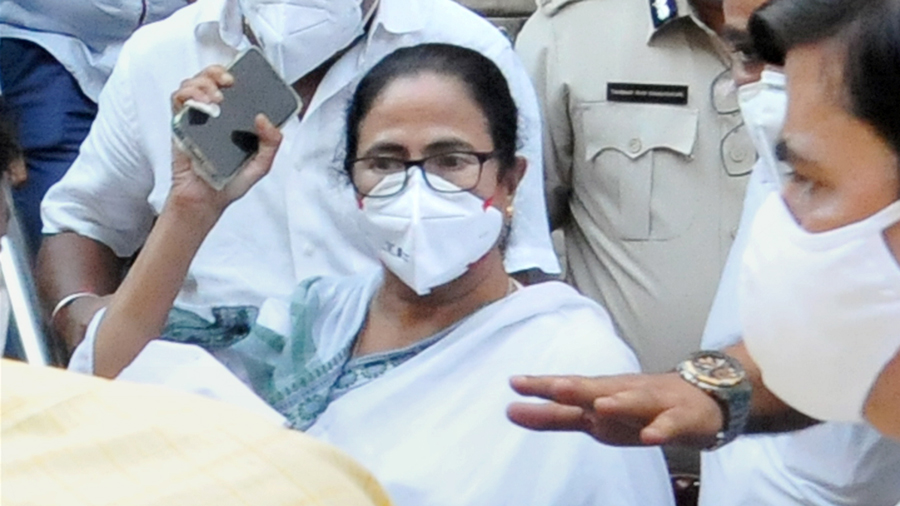Even schoolchildren are better losers than the Bharatiya Janata Party. But schoolchildren do not have the machinery of the State to wield as they will. Just a fortnight after the assembly election results in West Bengal gave a resounding victory to the Trinamul Congress Party, the Central Bureau of Investigation arrested three TMC members of the legislative assembly, two of whom are ministers in the new cabinet. The TMC leaders have been detained with reference to the purported Narada sting operation, which showed them, then state ministers, taking money. The Narada tapes were released before the 2016 assembly elections, in which the TMC won. Since the Calcutta High Court ordered an investigation into the sting in 2017, the timing of the CBI’s action is revealing. Its selectiveness too: Mukul Roy and Suvendu Adhikari, former TMC leaders and now BJP office-holders, could be similarly charged but were not touched.
Unable to stomach not just the defeat in Bengal but also its scale, which gave the impression of an ideological resistance by the majority of the state’s voters, the BJP’s instruction for selective arrests would prompt TMC protests that could help consolidate charges of lawlessness that the BJP is drumming up. It would be wise for protesters not to walk into this trap. Post-poll violence is not new in West Bengal, so that is the one thing the BJP needs to hold on to. A Union home ministry team came to inspect violence in the state four days after the results. The most active proponent of the people’s suffering caused by TMC’s ‘retributive’ violence is, however, the West Bengal governor, Jagdeep Dhankhar, who visited Nandigram and Assam to meet those allegedly fleeing from TMC terror, and expressed shock at the destruction of democracy. By keeping up this many-pronged assault on a state struggling to contain infections and deaths that spiked because of an eight-phase election in the first place, the BJP seems to expect benefits that eluded it electorally. Overturning a government elected with a huge mandate would be nice, but the history of Bengal, say, of 1968-69, may act as a warning. Perhaps it feels that stirring the cauldron of trouble will yield unforeseen benefits. Whatever else, cooperative federalism and Covid control do not seem to figure on the BJP’s agenda as far as Bengal is concerned.











